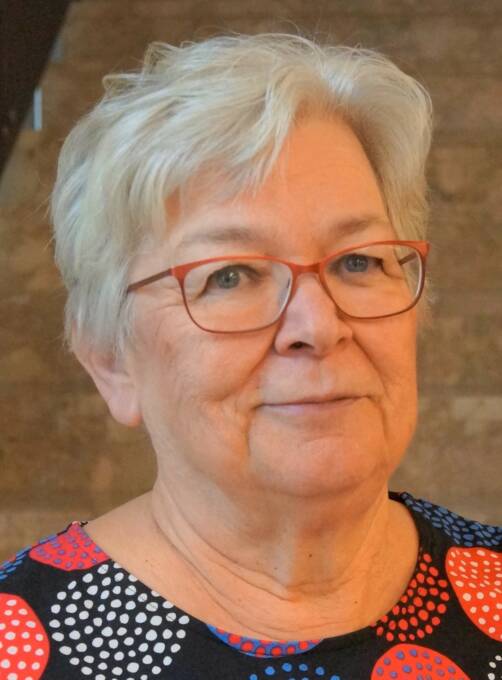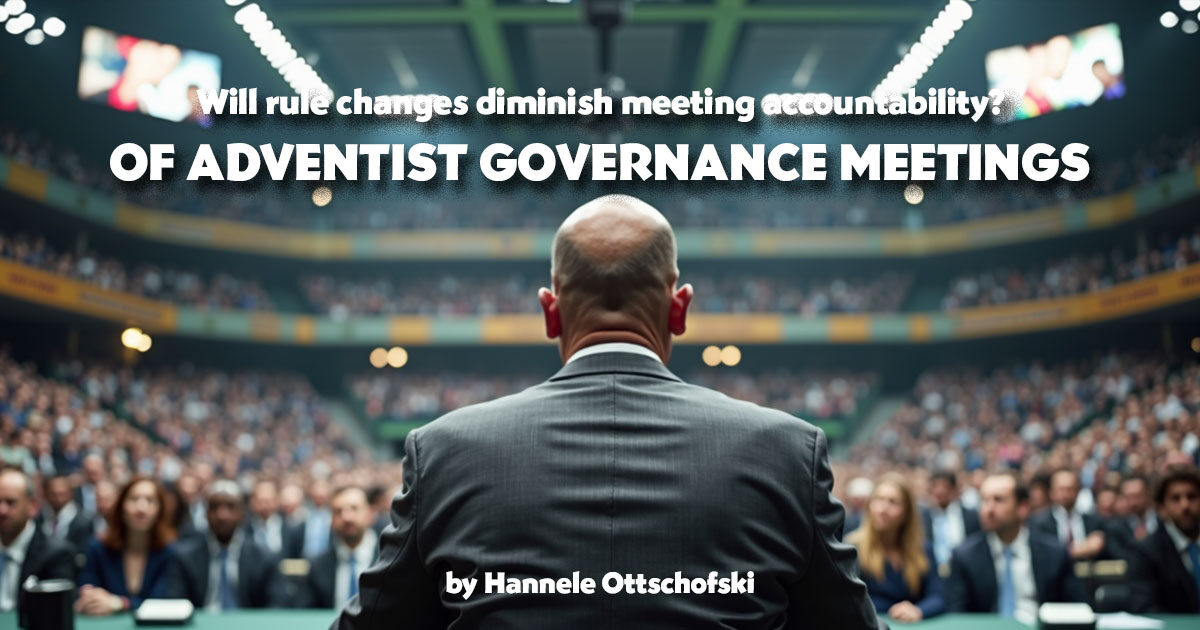New Rules to Oversee Adventist Governance Meetings: Are They Helpful?
by Hannele Ottschofski | 22 May 2025 |
On a recent visit to Helsinki, we learned that anybody can watch the Finnish Parliament working, either in person or online. We arrived at the correct entrance at the designated time and passed the security check. From the visitors’ balcony we observed the question time, and saw how the Members of Parliament (MPs) stood up to challenge the policies of the government.
 Each question was answered by the minister concerned. What impressed me particularly was how the Speaker of the Parliament refrained from any comments. He just presided over the session and regulated the order of speeches. Parliamentary discipline was upheld. The questions were directed at the ministers in charge of the relevant policies and legislation, and they responded to the questions asked. It was not the job of the chair to answer.
Each question was answered by the minister concerned. What impressed me particularly was how the Speaker of the Parliament refrained from any comments. He just presided over the session and regulated the order of speeches. Parliamentary discipline was upheld. The questions were directed at the ministers in charge of the relevant policies and legislation, and they responded to the questions asked. It was not the job of the chair to answer.
Our church organization does not have the same rules as a government body; it has rules and regulations that are based on its own parliamentary tradition. And recently, they’ve voted some changes that, it seems to me, make it even less responsive to the body.
Adventist meetings
Have you ever wondered why the delegates at Adventist governance meetings, such as the executive committee or General Conference in session, get two minutes to present their concerns while the “Brother Chair” can take as much time as he likes to comment on what was said? Why should he make any comments at all? The duty of the chairperson is to regulate proceedings, not to comment on everything.
The General Conference (GC) Executive Committee has approved several updates to the Rules of Order that will govern proceedings at the upcoming General Conference Session in St. Louis. The revisions address key procedural aspects, including points of order, voting methods, and quorum rules. However, it seems that the revision or clarification gives more power to the chair with “more tools to deal with points of order if they start to become obstructive or not moving the issue forward.”
Take this, for example. Regarding referrals back to the nominating committee when there is an objection to a whole report or part of it,
“The chair may accept the referral at his or her discretion. To facilitate deciding whether to accept the referral, the chair may request the person(s) seeking the referral to consult with the Nominating Committee chair regarding the reason for seeking the referral. If the request becomes a motion, it is nondebatable and it is decided by simply majority vote.”
While I acknowledge that rules and regulations are necessary, these revisions seem to give more power to “Brother Chair” than necessary.
Suppose that the chairperson is the very person against whose nomination a referral back to the nominating committee has been requested. The rule says that “The chair may accept the referral at his or her discretion.” What would happen?
A contrasting process
At the question time in the Helsinki parliament, the main topic addressed was the financial stability of the country and why cuts were being made to health and social care, while at the same time tax cuts would benefit the wealthy. Two days later, 4,000 people (a large number for a nation of 4.5 million) gathered for a demonstration against these measures, and marched to the parliament demanding that the prime minister step down. The opposition also proposed a vote of no confidence.
While these measures are usual in the political world, they do not exist in a church. There is no “government” to answer questions. There is a group of officers and lots of administrators, but they all seem to do what is ordered from the top down without having to answer questions from the membership, as represented by the delegates.
In fact, there might be no possibility to ask questions, as the new regulations allow the chair to ignore uncomfortable queries. The possibility of a vote of no confidence does not exist.
That is why it is so important for the leadership of the church to be chosen on the basis of Christian humility and fairness instead of ambition for power.
 Hannele Ottschofski writes from Hechingen, Germany. She is the author of Tired of Waiting: Women in Church and Society.
Hannele Ottschofski writes from Hechingen, Germany. She is the author of Tired of Waiting: Women in Church and Society.
To comment, click/tap here.




